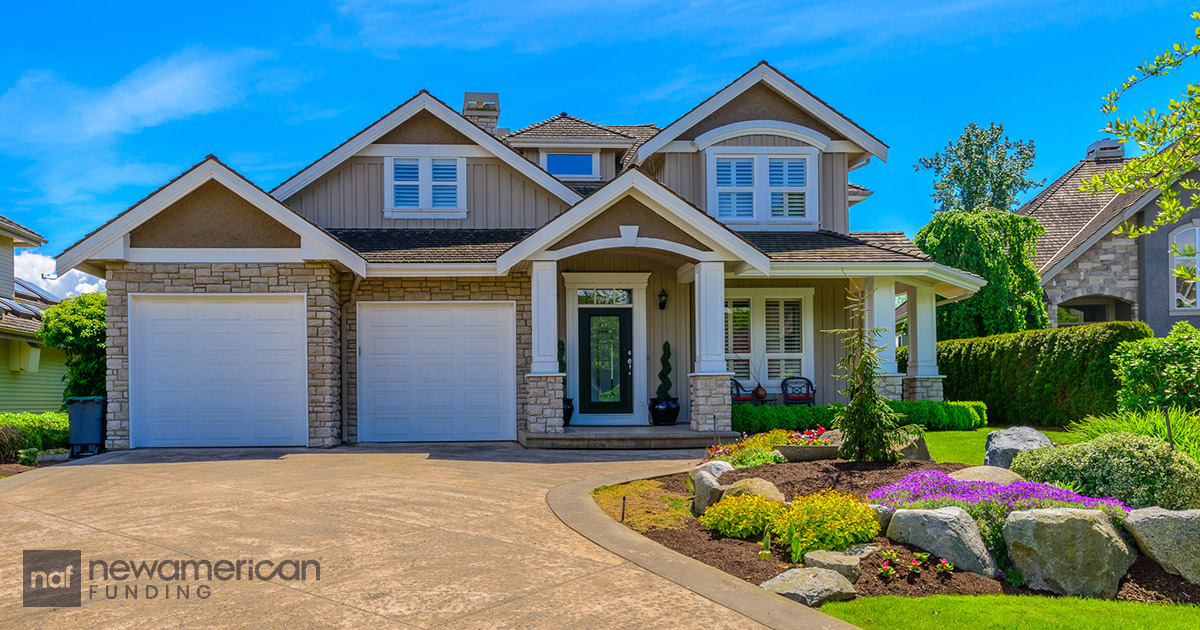Homebuyers
What to Consider Before Purchasing an Investment Property
May 12, 2016
Buying an investment property can be a great way to generate income, diversify your assets, and build wealth. Not only can you make money by renting the property out, but you can also reap the benefits of some substantial tax deductions.
Before you leap into investment property ownership, though, there are a variety of factors you should consider. Choosing to put your money into an investment property is very different from investing it in something like the stock market, as an investment property will require your constant attention and time.
New American Funding's investment property loan representatives are here to help you determine whether an investment property is the right choice for you and your family. Here are a few questions to ask yourself before purchasing an investment property:
"An investment property will require your constant attention and time."
1. Am I Prepared to Pay the Extra Fees Associated with Investment Properties?
In addition to your monthly mortgage payment, don't forget to factor in extra costs like property taxes and maintenance. There may also be additional costs if you decide to hire a property management company to take care of the property in your place.
In addition, landlord insurance tends to be substantially more expensive than standard homeowners insurance, as the fact that the owner of the property is not regularly present puts it at a higher risk of damage. From an insurance agency's perspective, a rental property needs added liability coverage, which generally puts the premium about 20 percent higher than the premium for standard homeowners insurance.1
2. Will I be able to Cover Those Fees if I Struggle to Collect Rent?
Keep in mind that you may not be able to rely on a steady stream of rent payments. For one, it could be difficult to have your property filled with tenants at all times. Even when it is full, some tenants are bound to make late rental payments or fail to pay their rent at all. In that case, you'll be dealing with an eviction and a lack of sufficient funds.
3. Do I Have Enough Cash for a 20 Percent Down Payment?
When borrowers take out a loan with less than a 20 percent down payment, they are usually required to purchase mortgage insurance. Mortgage insurance, however, will not cover an investment property, so you will need to manage a down payment of 20 percent or higher to be able to make your purchase. The higher your down payment, the better your interest rate.
4. Will I Enjoy Being a Landlord?
Don't forget that renting out a property means you will be responsible for finding and screening tenants, managing them, and also heading over to the property any time there is a problem. That being said, are you in a position to do so? If you have a full-time job, young children, and a house of your own, for example, you may struggle to squeeze your landlord duties onto your to-do list.
5. Do I Know How to Successfully Complete Basic Home Improvement Projects?
When tenants call you with issues, you will need to know how to fix them - or be able to afford to hire someone else to fix them. Ask yourself whether you will know what to do when various home improvement issues arise, but even more, ask yourself whether these are issues you will want to deal with. If fielding tenant phone calls and dropping whatever you're doing to rush over and fix a fussy heater or broken shower head doesn't sound like you're cup of tea, an investment property might not be for you.
Of course, there is the option of hiring an outside management company, but remember, that will cut into your profits.
7. What Shape Is the Property In?
Does the property you're looking to invest in need a lot of work before you start renting it out? If so, make sure you have enough money to make those repairs, as you will need to do so before you begin generating income.2
If you do decide to invest in a property that needs some work, New American Funding can help you obtain an FHA 203k Home Improvement Loan, which will bundle the cost of your mortgage and a construction loan into one great package. A fixer-upper can be an incredible investment, and the right funding could help you bring that property's value way up.
There are many loan options when it comes to purchasing an investment property, from 15- and 30-Year Fixed-Rate Mortgages to Adjustable-Rate Mortgages and Jumbo loans. Let the experts at New American Funding guide you through the process and help you select one that best meets your needs.





 Smart Moves Start Here.
Smart Moves Start Here.